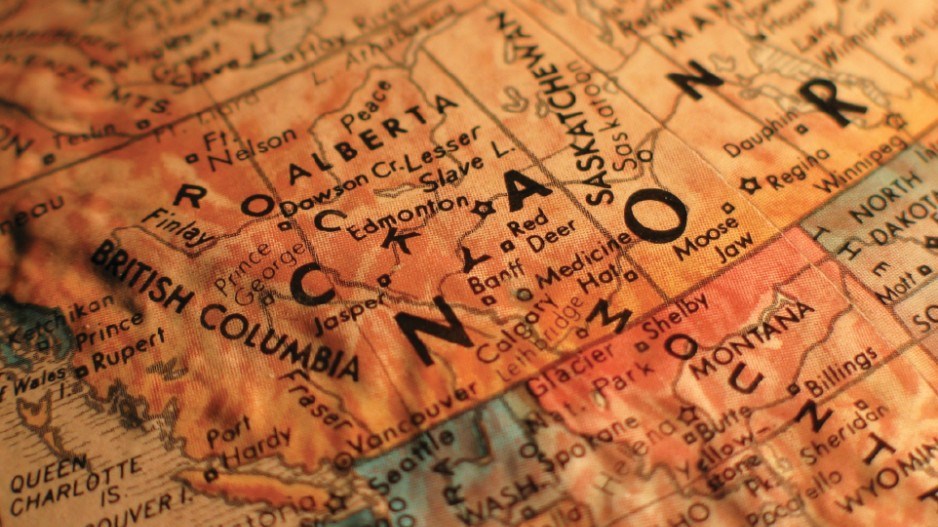In light of continuing trade tensions between Canada and the United States, a Calgary-based economist is calling on B.C. to do more in strengthening business links with its U.S. state-government counterparts .
Carlo Dade, director of the Canada West Foundation’s Trade and Investment Centre, said many Canadian jurisdictions have the tendency to sit back and defer to Ottawa when talking about large-scale trade issues with the United States. That approach, Dade said, has shown to be ineffective on its own when it comes to addressing Western Canada’s needs.
“What we are learning about the United States is, we really need to premiers and the MLAs to talk with their state-legislator counterparts,” Dade said, noting areas such as overall market access, energy or environmental policies as examples. “The issues we’ve seen here in Western Canada in the last few years do not move simply because Ottawa and Washington want it to.”
Dade said the reason for more province-state level interaction is simple: Direct lobbying in the U.S. on behalf of Canadian provinces may be more effective than going through Ottawa – especially in cases where the ideology of certain states aligns with whoever is in power in Washington.
That works in the U.S. Congress – where representatives may be less likely to take stringent protectionist stances against Canadian exports – and beyond, Dade argued.
“If we want favourable outcomes coming out of the United States, we need to be able to leverage support,” he said. “[The White House] cannot respond to calls from Ottawa, but it can respond to calls from its own governors. It can respond to impacts made in the chambers of Congress.”
In a statement in response to claims that B.C. isn’t doing enough on engaging states directly, provincial Minister of State for Trade George Chow issued a statement noting the difficulty to engage in recent months due to COVID-19-related travel bans between the two countries – an issue that’s being worked out.
“The pandemic created unprecedented challenges for trade activity at home and around the world,” Chow said. “Public health measures like border closures and travel restrictions forced us to adapt. We are now engaging partners in the U.S. and overseas with online meeting platforms, virtual conferences and tradeshows.”
Chow also said that before the pandemic, the province was taking measures such as hosting senior representatives from the Western Governors’ Association on tours of B.C.’s housing and carbon-capture initiatives. He noted that B.C. is a founding member of the Pacific Northwest Economic Region and hosted the group’s summit in 2017, while the private sector is engaged in the Cascadia Innovation Corridor initiative that’s supported by government.
“We have an important trading relationship with the U.S. and as we try to grow our economy in the midst of the pandemic, we are finding new ways to strengthen our ties to our neighbours to the South, and in particular within the Cascadia region,” Chow said in his statement.
B.C. Premier John Horgan has collaborated with Washington state governor Jay Inslee, agreeing on a memorandum of understanding in 2018 while discussing issues such as high-speed rail between Vancouver and Seattle, then jointly agreeing to expand a clean-energy grid spanning the two states.
That, Dade said, isn’t enough on the overall scale of U.S.-Canada trade.
He noted regular attendance by Alberta, Saskatchewan and Manitoba officials at the Western Governors’ Association’s meetings south of the border, with not just premiers but also MLAs taking part to strengthen the conversational links.
“Alberta is not at these meetings just to talk to Montana about fixing the Milk River or the St. Mary River irrigation project,” Dade said. “They are there to talk to others in areas of broader interests. B.C. needs to show up – especially at the next Western Governors’ Association meeting. Will you go and talk about more than just a railroad between Vancouver and Seattle?”




